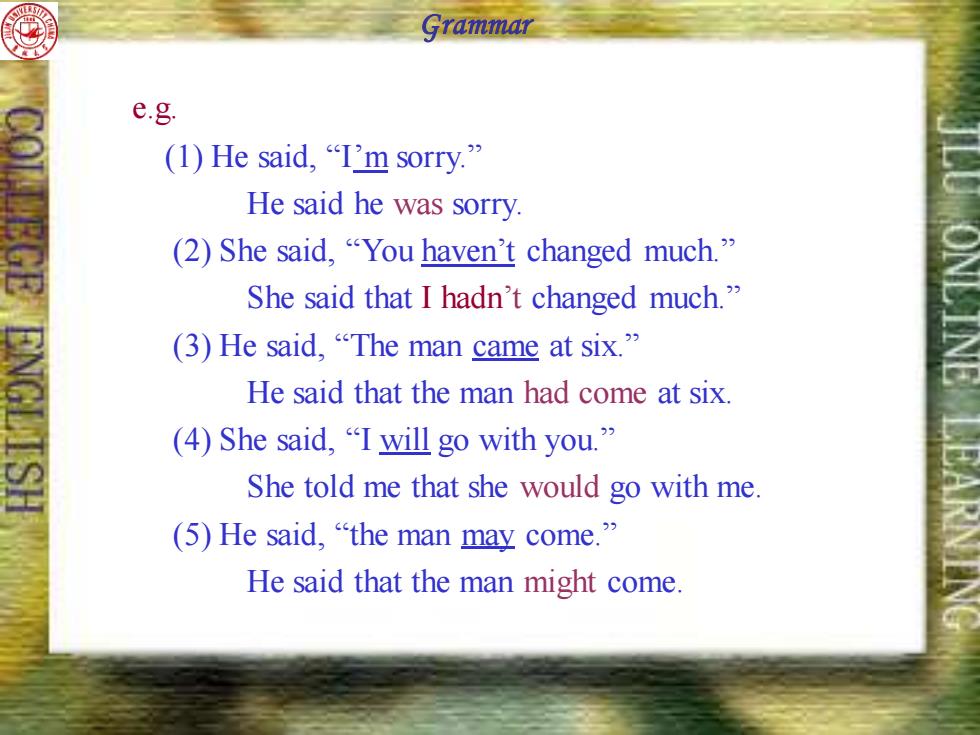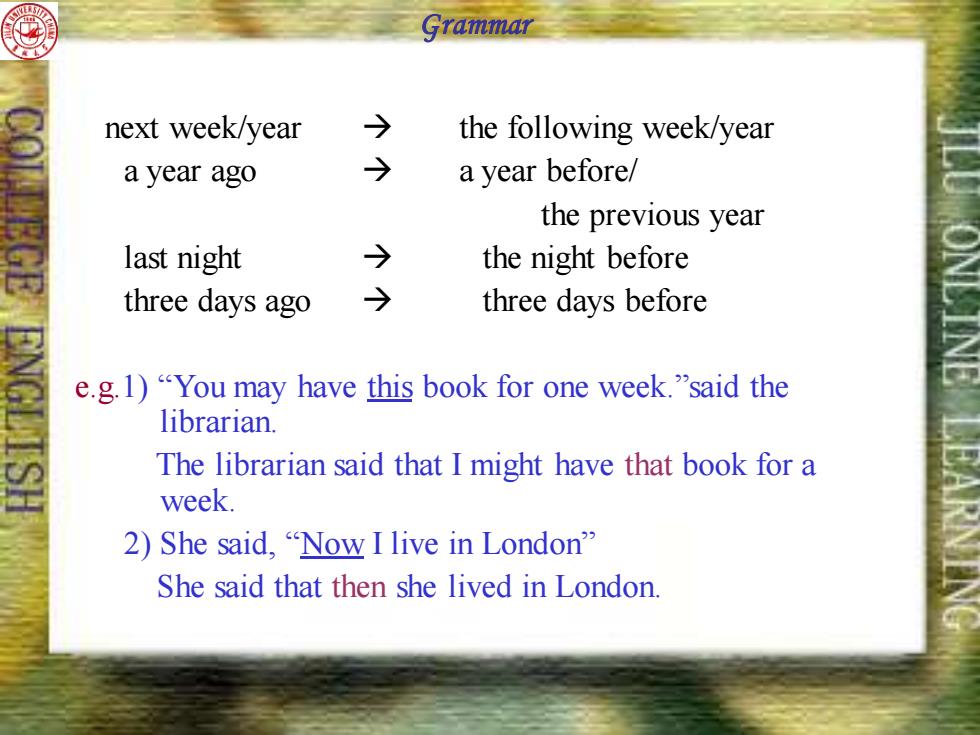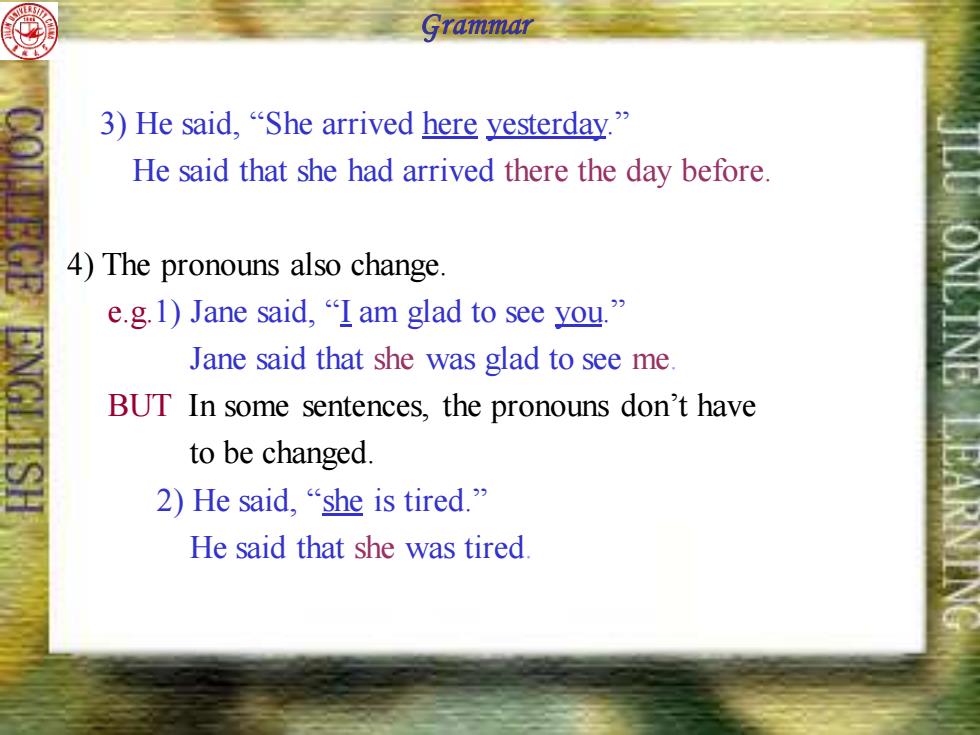
Grammar e.g. (I)He said,“T'm sorry.” He said he was sorry. (2)She said,"You haven't changed much." She said that I hadn't changed much." (3)He said,"The man came at six." He said that the man had come at six (4)She said,“I will go with you.” She told me that she would go with me. (5)He said,"the man may come." He said that the man might come
(1) He said, “I’m sorry.” He said he was sorry. (2) She said, “You haven’t changed much.” She said that I hadn’t changed much.” (3) He said, “The man came at six.” He said that the man had come at six. (4) She said, “I will go with you.” She told me that she would go with me. (5) He said, “the man may come.” He said that the man might come. Grammar e.g

Grammar 3)Adverbs of time and place and a few other expressions change as follows: Direct Indirect now → then here → there this/these → that/those today that day yesterday the day before tomorrow the next day/ the following day
3) Adverbs of time and place and a few other expressions change as follows: Direct Indirect now → then here → there this/these → that/those today → that day yesterday → the day before tomorrow → the next day/ the following day Grammar

Grammar next week/year the following week/year a year ago > a year before/ the previous year last night → the night before three days ago → three days before e.g.1)"You may have this book for one week."said the librarian. The librarian said that I might have that book for a week. 2)She said,"Now I live in London She said that then she lived in London
next week/year → the following week/year a year ago → a year before/ the previous year last night → the night before three days ago → three days before e.g.1) “You may have this book for one week.”said the librarian. The librarian said that I might have that book for a week. 2) She said, “Now I live in London” She said that then she lived in London. Grammar

Grammar 3)He said,"She arrived here yesterday." He said that she had arrived there the day before. 4)The pronouns also change. e.g.1)Jane said,"I am glad to see you." Jane said that she was glad to see me BUT In some sentences,the pronouns don't have to be changed. 2)He said,"she is tired." He said that she was tired
3) He said, “She arrived here yesterday.” He said that she had arrived there the day before. 4) The pronouns also change. e.g.1) Jane said, “I am glad to see you.” Jane said that she was glad to see me. BUT In some sentences, the pronouns don’t have to be changed. 2) He said, “she is tired.” He said that she was tired. Grammar

Grammar 5)When the sentence expresses a fact that is supposed to be universally true and not merely applicable to the time when the statement was made,the present tense may be used in indirect speech. e.g.1)"The earth moves around the sun,"the teacher told us. The teacher told us that the earth moves around the sun.(客观真理) 2)"The meeting is next Tuesday,"He said. He said that the meeting is next Tuesday. (间接引语所说的情况在说话人说话时仍然存在)
5) When the sentence expresses a fact that is supposed to be universally true and not merely applicable to the time when the statement was made,the present tense may be used in indirect speech. e.g. 1) “The earth moves around the sun,”the teacher told us. The teacher told us that the earth moves around the sun.(客观真理) 2) “The meeting is next Tuesday,” He said. He said that the meeting is next Tuesday. (间接引语所说的情况在说话人说话时仍然存在) Grammar